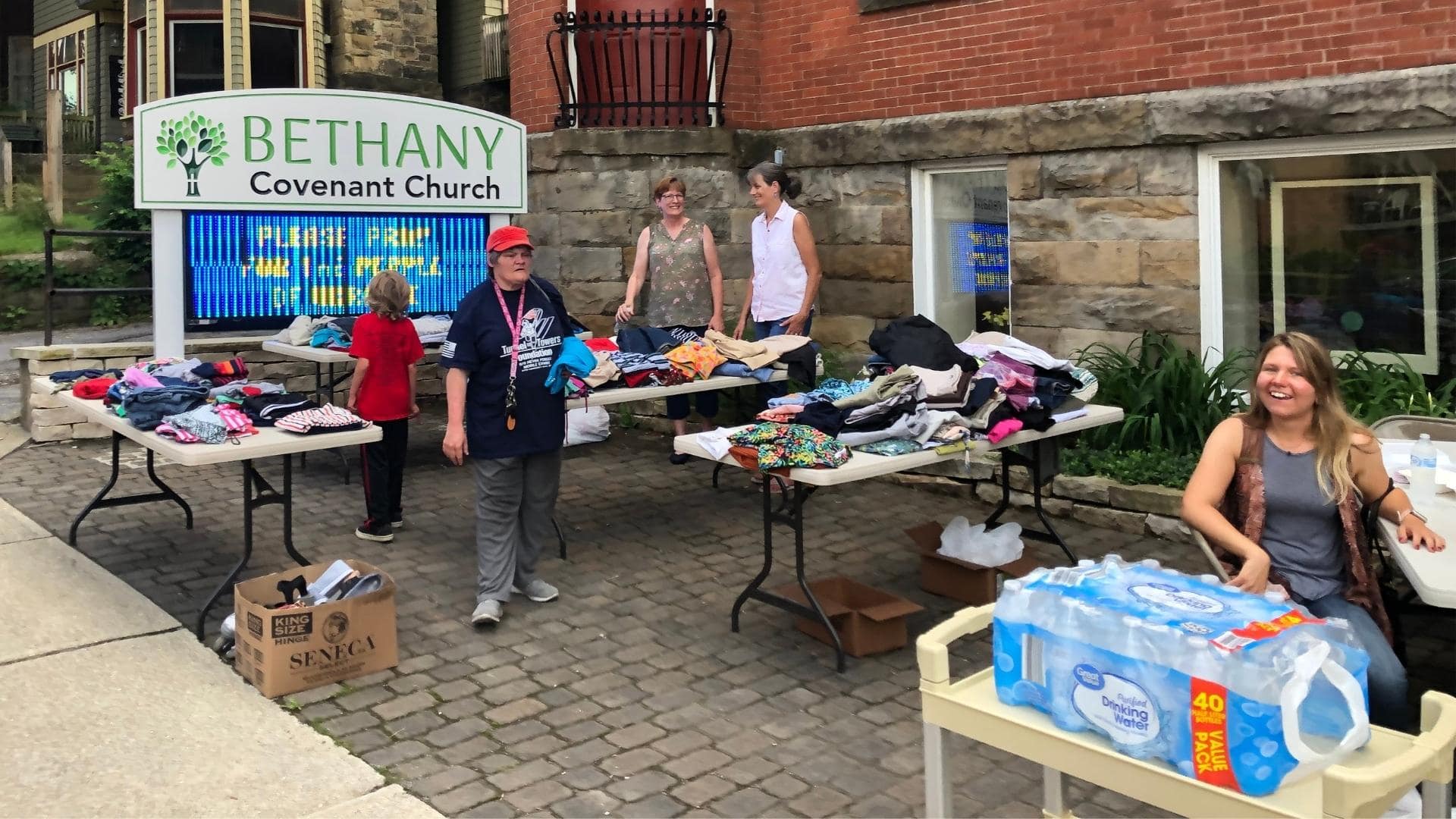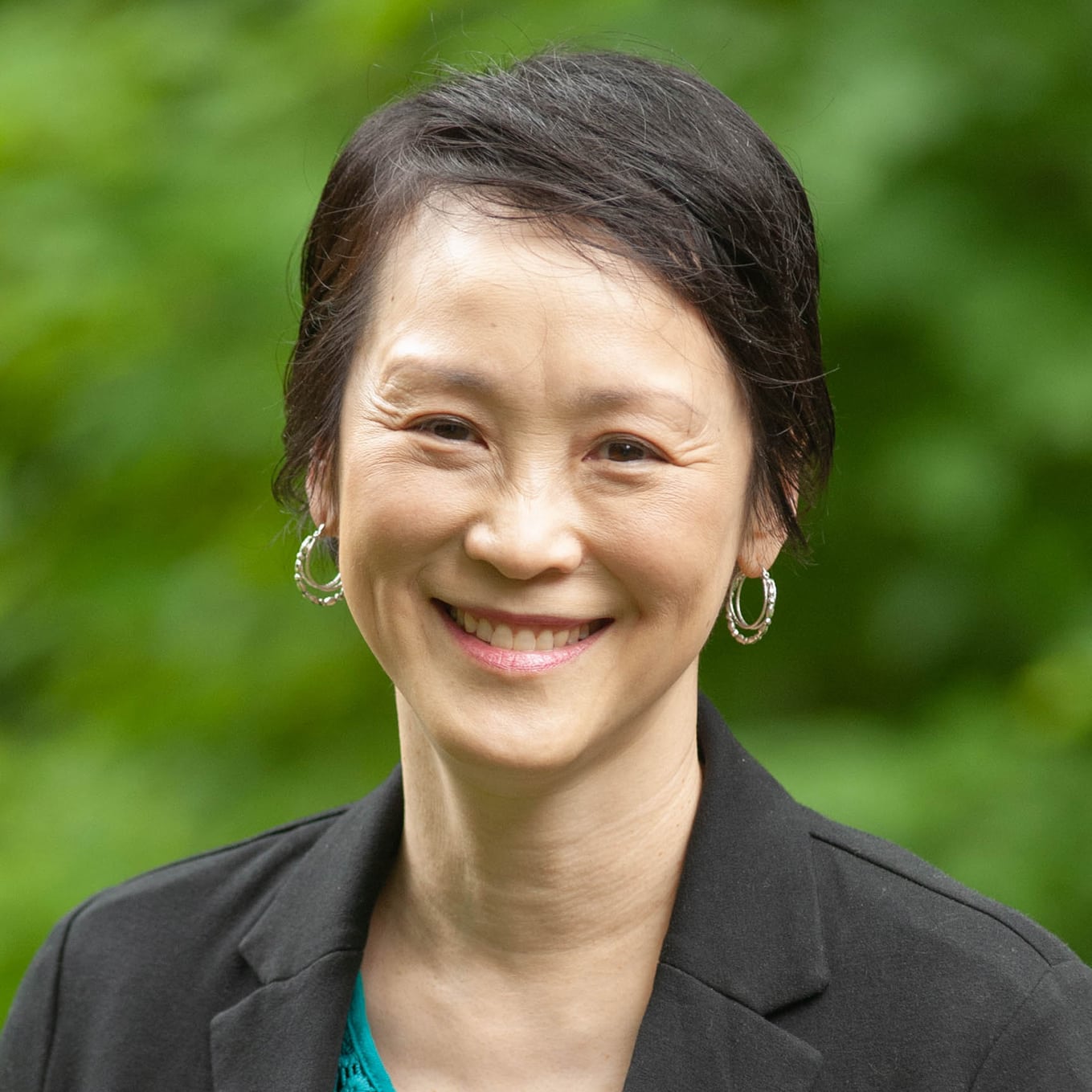Spotlight on Bethany Covenant Church
This article is part of a series exploring how Covenant leaders are facing disruption through innovation and creativity.
Pastor of a small-town church. Admirer of Greek stoics. Creative thinker. Congregational collaborator. Jesse Slimak, pastor of Bethany Covenant Church in DuBois, Pennsylvania, embodies all of these traits—which may contribute to his resilience in facing challenges.
Bethany Covenant is a 124-year-old church located in the middle of Pennsylvania in a town of 9,000 people. DuBois is not connected to any major metropolitan area; the nearest Covenant church is a two-hour drive.
In the past, the church went through the Missional Vitality process and experienced a wake-up call. They turned their focus outward. Before the pandemic, they were experiencing missional momentum. When the pandemic caused churches to close their doors, Slimak and Bethany leaders faced difficult decisions that required new solutions informed by innovative thinking. The decisions needed to be made not only by the pastor but as a community.
Slimak, who has child with autism, is an advocate for disability ministry. The church has had a strong history of embracing people with disabilities and other challenges; this value is core to its DNA. When he candidated at the church, he says, “A big thing that caught my attention was when I heard they were remodeling the church and would become more handicap-accessible.” When a church member had a seizure, other church members took turns caring for him. Several attendees are people with autism. The church experienced new life and momentum.
Collaboration: Start with the Core
Slimak avoids making unilateral decisions. His first impulse is to engage the church board to process events and discussions together. “When Covid hit,” he says, “I spoke to the board and asked, ‘What do you think about this?’ and made decisions that way.”
Such an approach does not guarantee agreement of course. Early on, church leaders did not agree on whether to stop worshiping in person. Slimak notes the concept of “diffusion of innovations,” a theory that recognizes that people are in various places on a spectrum of readiness to adopt new ideas—their willingness to engage lies along a bell-curve distribution. On one end are innovators and early adopters, which make up a small percentage of the population. Most people fall in the middle, eventually joining as the idea becomes normalized. Late adopters and those who never accept change is a small percentage.
Slimak chooses to begin with those willing to consider new ideas. “Starting in the right place and building consensus is important,” he notes. He interacts with people who are willing to try different approaches and begins experimenting.
The church subscribed to Right Now Media, a streaming library of Bible studies, as an experiment to see if the congregation would engage with them. Over time, support grew. “Some said, if that many people are on board, I will be on board too,” recalls Slimak.
Conflict: Engage the Majority, Acknowledge the Minority
Every congregation represents a wide range of opinions, and not everyone is on board with any given proposal. Slimak recognizes that he needs to address criticism and disagreements—that pain is part of leadership. He recommends reading Failure of Nerve, by Edwin H. Friedman, which addresses leadership anxiety and adaptive leadership. Ronald Heifetz, author of Adaptive Leadership, reminds him that leadership is about “disappointing your own people at a rate they can absorb.”
In the midst of disagreements, Slimak weighs the opinions of the majority and minority voices, acknowledging the minority without allowing them to wield the majority of power. “I realize not everyone’s going to be happy,” he says. He has frank conversations with church members who express disappointment. And he continues to engage the majority by starting with the core.
When the church’s traditional Sunday school was not attracting new people, Slimak realized that a change was needed and began emphasizing the need for Christian formation to effectively make disciples. The church began implementing small groups that focused on discipleship formation. Through the process of change Slimak stays connected and engaged to help ensure that the church moves forward as a whole together.
Curiosity: Faithfulness and “Failure”
“So often, I come back to Christ at the center,” Slimak says. He strives to make Jesus the core of all he does. His life verse is Galatians 2:20, “I have been crucified with Christ and I no longer live, but Christ lives in me,” which reminds him of the serious charge he has been given and helps him gain perspective on adversity and even failure.
During the pandemic, Slimak preached on Ezekiel 2- 3. “I said God doesn’t call you to success; he’s called you to faithfulness.” God told Ezekiel, “You’re going to fail,” Slimak explains, adding, “We need the prophetic voices no matter how few they can be, no matter if they’re drowned out like Jeremiah or told they will fail like Ezekiel.”
The church had a good-sized youth group that was effective at reaching the community, but most of the young people did not attend church services. Over time, the youth director moved away and students left. Although the circumstances were discouraging, “I told people this wasn’t a waste and this was not a failure,” says Slimak. “I don’t know if there’s absolute failure if you’re going to learn something.”
To Slimak, navigating disruption is beyond just making lemonade out of lemons. Instead, he asks, “What opportunities does this situation offer that wouldn’t be present otherwise?”
Before Covid, he would never have considered holding a service outside in front of the church. But they began meeting outside for worship, and people across the street came over and joined them for communion.
During Covid, their meals ministry developed organically. What began as simple takeout meals eventually turned into preaching a series on the BLESS evangelism practices and creating a meals ministry as an opportunity for people to stay and talk. Over time, Shalom Circles began to develop.
Shalom Circles, a resource from Love Mercy Do Justice, are a way for town and country churches to serve as agents of God’s shalom in their communities and the world. “The idea is to be discerning where God is at work already in the community and to join God in working toward shalom,” says Slimak. He attends a Shalom Circle that is a diverse group of people who seek to minister to marginalized people and engage in restorative justice. Slimak has found the conversations to be encouraging in engaging important issues with others who have a deep desire to be bearers of Christ’s shalom.
Moving Forward
Dealing with crises and criticism is a normal part of moving forward, and Slimak recognizes that to do so a creative curiosity is needed. He keeps the future in mind, thinking not about the present but about the years ahead. “I’m not a patient person,” he admits. “It’s taken a lot of practice! I realize it’s a marathon, not a sprint, especially for an older, established church.”
He finds encouragement in an unusual place: the writings of Greek Stoics. He explains that the Roman poet Ovid said, “Be strong and tough—one day this pain will be of use to you.” Slimak adds, “I’ve found that pain is of use eventually. Any sufferings are sufferings with Christ if you allow them to be.” The Greek Stoics’ writings on hardship have also helped him recognize the impact of American optimism. He reflects, “I find Americans in general expect everything is going to be good all the time,” but that mindset can lead to disappointment. “Circumstances stink. That’s what it is. So what are you going to do?” He explains the ancient philosophers teach that what is important is not the circumstances, but one’s reaction.
Whether writings of theologians, ministry books, ancient writers, or others, Slimak’s expansive reading cultivates a curious and flexible mind. “Pastors are generalists,” he concludes. “We have to know a bit about everything!” In the midst of post-Covid realities, Slimak characterizes the learning mindset that enables pastors to navigate disruption.














